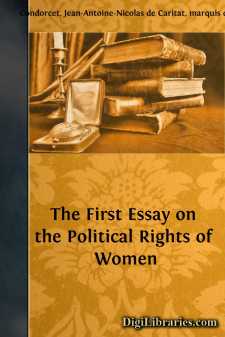Categories
- Antiques & Collectibles 13
- Architecture 36
- Art 48
- Bibles 22
- Biography & Autobiography 815
- Body, Mind & Spirit 144
- Business & Economics 28
- Children's Books 18
- Children's Fiction 14
- Computers 4
- Cooking 94
- Crafts & Hobbies 4
- Drama 346
- Education 58
- Family & Relationships 59
- Fiction 11829
- Games 19
- Gardening 17
- Health & Fitness 34
- History 1378
- House & Home 1
- Humor 147
- Juvenile Fiction 1873
- Juvenile Nonfiction 202
- Language Arts & Disciplines 89
- Law 16
- Literary Collections 686
- Literary Criticism 179
- Mathematics 13
- Medical 41
- Music 40
- Nature 179
- Non-Classifiable 1768
- Performing Arts 7
- Periodicals 1453
- Philosophy 65
- Photography 2
- Poetry 896
- Political Science 203
- Psychology 44
- Reference 154
- Religion 515
- Science 126
- Self-Help 85
- Social Science 82
- Sports & Recreation 34
- Study Aids 3
- Technology & Engineering 59
- Transportation 23
- Travel 463
- True Crime 29
Our website is made possible by displaying online advertisements to our visitors.
Please consider supporting us by disabling your ad blocker.
The First Essay on the Political Rights of Women
Description:
Excerpt
More than one hundred years have passed away since, in 1789, the Marquis de Condorcet wrote his “Esquisse sur l’Admission des Femmes au Droit de Cité,” and yet the problem of women’s enfranchisement still awaits an equitable solution. Those of us who are old enough to remember the inauguration of the popular movement for the extension of the franchise to women (which may be dated from the day in which our late noble leader, John Stuart Mill, addressed the House of Commons on this subject, in May, 1867), feel that our lives are passing away while wearily awaiting the dilatory educational development of mankind in this question.
The essential principles of our claim have been reiterated again and again. We form one-half of the human race, and need recognition by the law as much as the other half of the race. But, as long as our law-makers are not directly responsible to us for their conduct in Parliament, they may, and do, safely neglect our interests, and pass laws which jeopardise our liberties and subordinate our just rights of person, property, and offspring to the supposed interests of the men whom they represent.
The spirit which animates Parliament pervades the whole of our social life; and women suffer from lack of educational facilities, and from obstacles to success in industrial and professional life, in ways which have no parallel in the case of men. All these things have been urged again and again until we are weary of repeating them; and we ask ourselves, as we mentally review our position, Where shall we find some new argument wherewith to arrest the attention, and compel the action, of those who have the power, but seem to lack the will, to do justice? It is curious to note that the great point on which the mass of men seem united is their sex. Prejudices of race, of caste, of colour may be overcome; but the pride of sex remains. Rights of citizenship are accorded to the small shopkeeper, artisan, lodger, agricultural labourer, and to the illiterate who knows no difference between one party and the other, either as to tendencies or methods of government. The Anglo-Saxon confers rights of citizenship upon the foreigner, upon the negro (as in the United States), upon the Maori (as in New Zealand)—the last of whom, sitting in the New Zealand House of Representatives, helped to maintain this glorious prerogative of sex by giving their casting-votes against a measure intended to meet the claims of the Anglo-Saxon women in New Zealand.
And all this despite the admitted fact that the social and economic problems, which are coming more and more into the field of parliamentary labours, are all but incapable of solution without the help of enfranchised women.
Must women, then, following the example of men, learn to put sex in the first place and regard all other interests as secondary? Is this really what men wish to force women to do? One would think not. At present women have not adopted any such principle of action. They are divided rather than otherwise, according to the relations they occupy with regard to men. The married woman, on the one hand, seems opposed to the claims of the widowed and single, on the other—and vice versâ; and both together combine to ostracise some of their own sex. It seems probable, however, that we women will have to learn to drop all such rivalries, and determine to form one vast organisation, which shall include within its ranks all sorts and conditions of women, and shall extend over the whole of the United Kingdom, if we would not see this nineteenth century completed without Woman’s Emancipation becoming an accomplished fact....


